Key information
Programme overview
The societal and environmental challenges in front of us are existential. Addressing them calls for a collective effort from all parts of society, including business. Sustainability is no longer an option; it is a requirement for every organisation on the planet to develop and execute sustainability strategies. At the same time there are significant opportunities to develop businesses or propositions and improve the lives of customers, colleagues and across society.
Being sustainable in strategy, practice and impact requires going beyond compliance. It involves designing and implementing business sustainability strategies that create positive and tangible impact and value for your entire ecosystem of stakeholders.
This calls for a holistic and integrated approach that drives value and sustained growth; growth that meets the needs of today as well as those of tomorrow.
To move from sustainability strategies to holistic and cost-effective actions plans, organisations need new processes underpinned by systems thinking, a reined organisational purpose, structural changes, and the systemic controls to align and inspire your team. This programme will provide the tools to protect your sustainability action plan from the perils and pitfalls that lie ahead. Some challenges are common to all strategic initiatives – others deeply specific to executing sustainability strategies.
Designed and delivered by Executive Education Imperial Business School in collaboration with the Imperial College Leonardo Centre and the and the Sargent Centre for Process Systems Engineering, our Executing Sustainability Strategies course is a unique executive education learning journey.
The programme gives you the depth, time and space you need to refine and implement your sustainability strategy—with continuous, follow-through support and guidance from the Imperial College ecosystem of world experts in sustainability and leadership.
Who should attend?
The Executing Sustainability Strategies programme will accelerate your capacity to validate, refine, and upgrade your strategy, and drive its successful implementation. It is designed for leaders who want to develop their ability to deliver an existing or preliminary sustainability strategy.
This programme is suitable for those who are either responsible for, or playing a key role in, implementing a sustainability strategy for their business including (but not limited to):
Senior leaders involved in overseeing the development and implementation of the organisation or business unit’s sustainability strategy, policies and initiatives. Leaders who engage with internal and external stakeholders, report on sustainability performance, and ensure compliance with relevant regulations and standards.
Sustainability champions who provide expert advice and support on sustainability issues, conduct research and analysis, develop and implement sustainability projects and programmes, and communicate sustainability outcomes and impacts.
Innovators and change agents who use creativity and innovation to solve sustainability challenges, design and develop sustainable products, services, or solutions, educate and inspire others on sustainability topics, and drive change towards a more sustainable future, creating and communicating a compelling sustainability case for their organisation or sector.
Learning Objectives
Through a blended approach of on-campus, self-paced learning, mentoring and next-generation meditation techniques, you will develop a sustainable mindset, build the insights, tools and leadership capabilities to:
-
Refine and upgrade your existing sustainability strategy and build the skills to articulate the business case for change.
-
Identify and navigate the cultural and political challenges to systemic change within your organisation.
-
Enact procedures and control mechanisms and engage the right internal and external stakeholders to execute your sustainability strategy.
-
Champion systemic change and play a critical role in building the capabilities and the resilience to deliver your organisation’s sustainability strategy.
-
Create an action plan to execute your sustainability strategy (including stakeholder consultation, internal validation and approval, execution)
-
Lead the execution of your sustainability strategy and support your organisation in the transition phase towards more sustainable business.
Learning Journey
The execution of your strategy is planned with continuous support as you discover and apply new ideas and approaches. You start off with a self-paced programme preparation and then join your peers in London to work on the execution of your upgraded strategy plan. Once back to your organisation, you start the execution of your strategy, building on the action plans developed. During this phase, you continue to be supported with a live online touchpoint and have opportunities to measure the impact and initial results of the deployment of your strategic plan, share with and learn from the rest of the cohort.
Online, self-paced learning (a total of 3 learning hours) and one live virtual session (90 minutes) with faculty and peers.
You access the Executive Education programme app and begin to familiarise with your peers and programme learning material. This is where you start to validate your existing sustainability strategy as well as your own capabilities as a change leader for your organisation.
On-campus: Imperial College London
Through case studies, group work, expert-led discussion and guests from industry, you explore a range of critical ideas and issues. You engage in a Strategic Decision Mapping session for their sustainability strategies, including a Risks and Uncertainty Analysis to identify potential obstacles and uncertainties. This ensures the development of strategies that are both effective and resilient to potential disruptions.
You consolidate your sustainability leadership mindset and begin to plan the structural changes and resource allocation needed in your control systems, accounting and reporting, governance and innovation required to deliver your strategies.
You leave the on-campus phase with an action plan to execute your strategy, and you prepare to implement your upgraded sustainability strategy and measure impact.
Online, self-paced learning (a total of 2 learning hours) and one live virtual session (90 minutes) with faculty and peers.
Implement and deploy your strategic plan back in the workplace, engaging internal and external stakeholders.
At the end of this phase, you join a live touchpoint with the cohort and your Programme Director to measure the impact and initial results of the deployment of your strategic plan and be inspired by a guest speaker.
Programme faculty and experts
Executing Sustainability Strategies is enriched by insights from Imperial College thought leaders: experts from Imperial Business School, the Sargent Centre of Process Systems Engineering, and Imperial's Leonardo Centre on Business for Society, which houses the GOLDEN Sustainability Database. Our world-leading faculty and industry experts will expose you to new evidence-backed, approaches to strategy execution with strong links to industry.
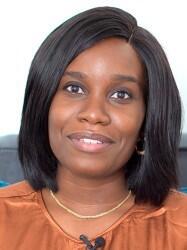
Gbemi Oluleye
Gbemi is a thought leader in decision making around interventions for sustainable innovation competitiveness. She has more than 10 years' experience as a consultant, lecturer and researcher in the fields of sustainable innovation development and assessment, energy efficiency, decarbonisation, sustainability, process design and integration and development of digital tools for a sustainable transition. As a consultant she helps organisations establish business cases for investing in sustainable solutions.
She has been a co-founder for two start-ups related to sustainable cooling, and software development for sustainable manufacturing. She is an associated director at the Sargent Centre for Process Systems Engineering, Programme director for Green Skills for a Sustainable Future Professional Development course, and academic lead for Green Industrial Interventions lab. Her research addresses complexities in designing interventions for the adoption and diffusion of key sustainable solutions. She focuses on achieving pivotal tipping points in critical areas such as electrification, hydrogen, carbon capture utilization and storage, and direct air capture, synthetic fuels crucial for decarbonizing energy-intensive sectors.
Her research has been published in several leading journals including Applied Energy, Journal of Cleaner Production, Sustainable Production and Consumption and Frontiers in Sustainable Energy Policy.
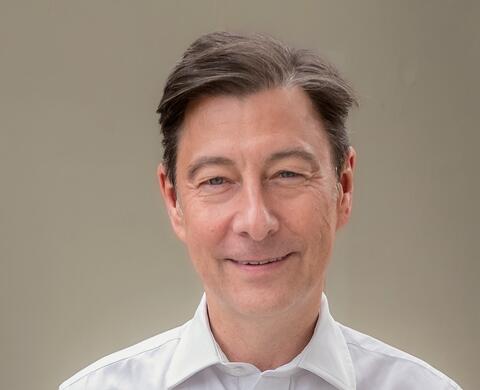
Ed Daniels
Ed is the former Strategy, Sustainability and Corporate Relations Director for Shell Plc. In this role Ed was a member of Shell’s Executive Committee had accountability for the company’s existing Strategy, Sustainability and Corporate Relations organisations.
Ed joined Shell in 1988 and has held roles in Shell’s Upstream, Integrated Gas, Downstream and Projects & Technology businesses. He previously served as Shell’s UK Country Chair, prior to becoming a Director, he was the Executive Vice President Strategy, Portfolio & Sustainability, he led the development of the company’s ‘Powering Progress’ strategy to drive the decarbonisation of the energy system and achieve net zero emissions by 2050.
A British national, Ed grew up in Wales and is married with three daughters. Outside of Shell, he has served as the Technical Vice President for the Institution of Chemical Engineers (IChemE), is a Fellow at both the IChemE and the UK Royal Academy of Engineering, and has an honorary doctorate from his alma mater, Imperial College London.
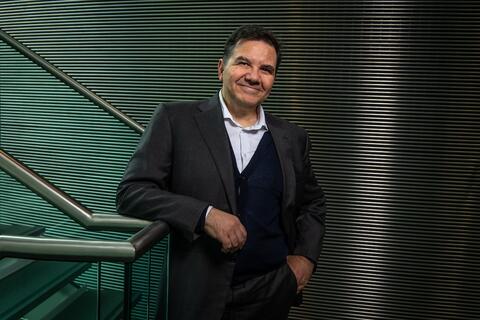
Maurizio Zollo
Professor Zollo is the Scientific Director of the School's Leonardo Centre on Business for Society. His research aims to understand how business organisations learn to grow and adapt to environmental turbulence and how managers can guide these evolutionary processes.
His research has been published in several leading journals, including the Academy of Management Journal, the Academy of Management Review and the Strategic Management Journal. His work has been covered in mainstream publications including Harvard Business Review, the Financial Times and The Wall Street Journal.
Professor Zollo is Editor-in-Chief of Organization & Environment and a past editor of the European Management Review. He served for a decade on the Executive Committee of the Academy of Business in Society, which he helped establish in 2002.

Eduardo Andrade
Eduardo is a professor of marketing at Imperial Business School and the Co-Director of the MSc Programme on Climate Change, Management & Finance. As a behavioural researcher, he is interested in how individuals feel, think and make decisions in contexts related to sustainable consumption, inequality, and health.
His articles have appeared in marketing (Journal of Consumer Research, Journal of Consumer Psychology, Journal of Marketing Research), medicine/public health (Lancet, Public Health Nutrition, Preventive Medicine, JAMA Network Open), and psychology journals (Psychological Science, Nature Human Behaviour), among others.

Superna Khosla
Superna is PwC’s Global Director for Reporting Strategy and Sustainability measurement. With over 15 years’ experience in sustainability reporting strategies, she focuses on unlocking business value from reporting requirements and emerging measurement techniques including impact valuation.
Her experience includes leading multi-disciplinary, global teams for new data solutions to embed sustainability reporting insights in a fast evolving regulatory environment , engaging with standard setters and running workshops on practical implementation challenges.
She started her career as a financial auditor at PwC UK, was Communications Director at HRH’s Accounting for Sustainability Project and was the Investor and Business Engagement Director at the International Integrated Reporting Council (now part of the IFRS’ International Sustainability Standards Board).
Superna has also chaired the Audit & Risk committees of VSO International and Earthwatch Institute and served as a board member of VSO International for over 8 years. She has an MA in Literae Humaniores from the University of Oxford and is a Fellow of the Institute of Chartered Accountants of England and Wales.
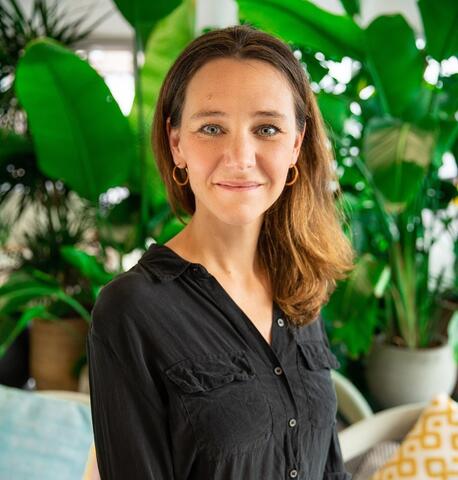
Caroline Milliotte
Caroline is a geologist - and passionate about natural sciences. She is the Global Sustainability Lead at Ekimetrics; her role is to define and implement the company’s sustainability roadmap and to drive the internal transformations along the way.
Caroline started her career as a 3D-numerical and statistical modeler for Earth Science applications. Before turning 30, she created a software and consulting company, focusing on H2 and CO2 underground storage and deep geothermal plays.
After completing a master’s degree in environment and energy policies, she joined the French ecological transition agency (ADEME) where she led the EU-sponsored “Energy Transition in the Caribbean” project, in tight collaboration with regional institutions.
She graduated from Sciences Po Paris (School of International Affairs) and has a double master degree from Ecole Nationale Superieure de Geologie (ENSG Nancy - Engineering school) and Universite de Lorraine.
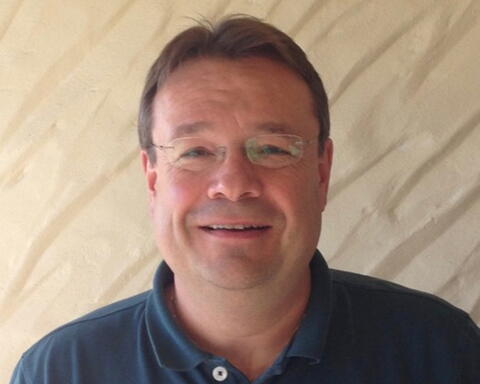
Frank Brueck
Frank Brueck has more than 25 years of experience as a consultant, trainer, lecturer and researcher in the fields of CSR and sustainability, cultural change, cross-cultural management, team building and leadership development.
Frank cofounded the GOLDEN for Impact Foundation and is a founding member of the International Association for Cross-cultural Competence and Management. His research focuses on the methodologies of CSR, cultural comparison, value-based management, sustainability and intercultural management and training. Frank holds a PhD in Business Administration from the Vienna University of Economics and Business in Austria.
Ethan O'Brien
Ethan O'Brien is currently a Strategic Advisor to Zendo, a UK energy technology start-up specialising in data centre decarbonisation and renewable energy procurement. He previously served for 5.5 years as the Global Director of Operations Sustainability at Klöckner Pentaplast, a multinational company specialising in food and pharmaceutical packaging. He holds a Chartered Energy Engineer (CEng) qualification and boasts over 12 years of global experience in leading renewable energy, sustainability, and energy efficiency projects across various continents for multiple multinational corporations. An alumnus of the University of Edinburgh, Ethan is deeply passionate about advancing more sustainable operational practices within companies. He is currently completing an Executive MBA at the University of Warwick Business School.

Mais Haddadin Finn
Mais Haddadin is a Vice President, Global Sustainability Lead at NexantECA, with a focus on strategic engagements in the sector. Mais is a chemical engineer with over 20 years’ experience in the advisory sector developing international commercial opportunities in innovation, market expansion strategies, international development, and public private partnerships.
She is deploying her versatile mix of experience to support clients in the transition towards carbon neutrality, the circular economy and clean energy. Mais is passionate about comprehensive approach to sustainability and believes that the future is connected, transparent and collaborative. Prior to joining NexantECA, Mais worked closely with multinationals, small to mid-cap enterprises, NGOs, and governments. She led public funded Innovative R&D projects and transformational economic programmes on European and international levels. Mais is also the Vice Chair of the Anglo Jordanian Society in the UK and been involved in several initiatives across EMEA to empower women, youth and refugees.

